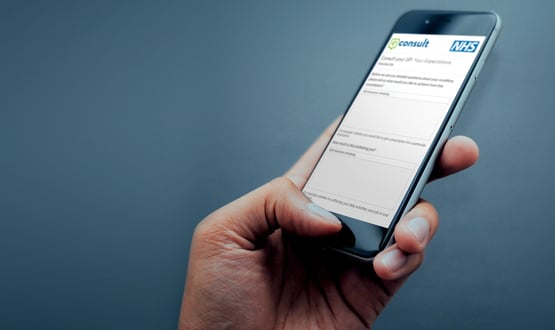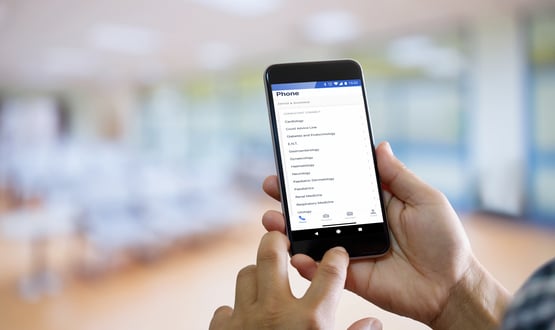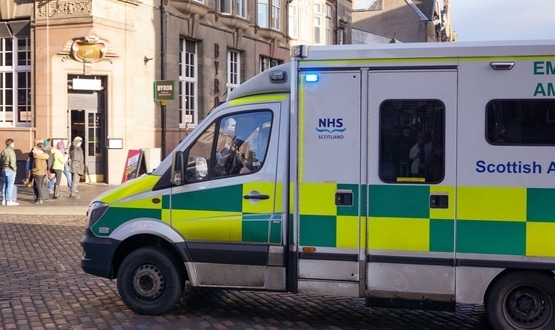Digital Spotlight: Using triage solutions to alleviate pressure on the NHS
- 12 May 2023

Effective digital triaging and consultation programs hold the promise of shifting pressures from overburdened parts of the NHS such as general practice and A&E.
For Patrick Davey, a consultant cardiologist at Northampton General Hospital and a senior advisor for telemedicine and triaging service Consultant Connect, these solutions are also a way of enabling closer connections between primary care and hospital specialists.
GPs second-guessing the reasons for a patient’s symptoms have often erred on the side of sending them directly into hospital in the absence of more specialised advice.
“Some of those patients didn’t need to go into hospital and some GPs didn’t know what to do in the interval before referral,” he said in an interview with Digital Health. GPs without close contacts among consultants often don’t know whom to speak to, with the result that many patients end up in hospital when they don’t need to be there.
Guidance from colleagues
The Consultant Connect app provides a list of hospital consultants and the order in which GPs should ring them. If there is no answer within 20 seconds, the app moves to the next consultant on the list.
While local hospital consultants occupy the top slots for users of the app, if none are available, a national consultant will field the call.
The fact that calls are recorded, Davey says, provides a chance to review his own communication skills: “It is a fantastic learning resource, great for clinical governance and legality and patient safety.”
For GPs, it can help provide confidence about their decision-making, he adds: “Around 10-15% of the time you listen and think the person needs immediate hospitalisation – by allowing the GP to use your name, you are giving them permission, or there are actually situations where it is quite grey and then it is a situation of managing uncertainty.”
Consultant Connect also operates an outpatient triage service that replaces physical referral documents that traditionally piled up on consultants’ desks and risked being misplaced.
Consultants can use Consultant Connect software to view referral data and supporting information, such as discharge information or EKGs, quickly allowing them to see what further treatment is needed and enabling them to act on it quickly, Davey says.
A traffic system for general practice
General practice has been a key focus for triaging.
Murray Ellender, a GP and chief executive of eConsult, a digital triage and remote consultation platform, started his company to help primary care patients who were forced to get on the phone at 8 am to see their GP.
In many cases, patients have routine needs – contraception checks or hay fever – that are amenable to quicker ways of managing transactions, he says.
Video calls initially seemed like an obvious solution, but didn’t save time for GPs. Instead, eConsult collects a patient’s story at a time that is convenient to them, before feeding it back digitally to the GP, who can make a final decision about next steps.
“We managed something uncomplicated without bringing the patient into the surgery – you could issue a prescription for a UTI and send the patient to a pharmacy,” he told Digital Health. “It allowed doctors to focus on bringing into the office patients who needed more time or attention.”
eConsult is now being used in 2700 practices across the UK, including Mid and South Essex NHS Foundation Trust, and has totted up 35 million consultations to date using its cloud-based system.
Ellender acknowledges that some patients are more adept at using platforms such as eConsult, but said it is generally well-received in areas where English isn’t the first language, and among “the online-savvy 50 pluses,” as well as younger users.
As for common concerns that more serious conditions might be missed on a digital platform, Ellender responds: “The history that we gather from the patient [online] is more comprehensive than the one I would gather if you sat before me as a patient – if you are sat before me I’m tasked with asking as few questions as possible to get to the right area.”
Earlier this week, eConsult announced a collaboration with Hero Health, an online booking and messaging platform that improves interoperability and eases the patient experience for practices using the combined technology.
This collaboration will see eConsult and Hero Health bring the first triaged self-booking solution to market, combining triage, patient information and booking into one system.
eConsult is also being used in ten A&E departments, with a dozen more set to go live by the summer. Patients entering A&E receive a tablet from the receptionist, fill out a form indicating their reasons for attending, before seeing a triage nurse who takes a [patient] history.
“Based on your story, the platform will prioritise you,” Ellender says. “If you have chest pains, it won’t ask many questions, but the platform will move you to the top of the queue.” The platform has now digitally triaged 800,000 patients across the UK.
Previously, Ellender recalls, A&E patients were processed at a single point, with a receptionist and a triage nurse, with queues often up to one and a half hours. “The reason A&E teams love [eConsult] is there is never a queue at the front door so you know who is sick and who is not sick.”
Looking forward
The next step for eConsult is outpatient care; the company is already trialling a system in three hospitals in Mid and South Essex Foundation Trust and is building it out among 40 specialities, Ellender says.
Both Davey and Ellender see the adoption of digital consultation and triage programs as an obvious solution for redesigning service to cope with the staff shortages weighing on the NHS.
“When you speak to the NHS leadership, a lot of tech spend goes on implementing new EHRs in hospitals and in the last year, a lot of tech budgets were raided in order to fund workforce challenges,” Ellender says.
“We definitely need more staff, however it will take time to recruit and train them; we should be investing in technology to make it easier for the staff that are working.”




